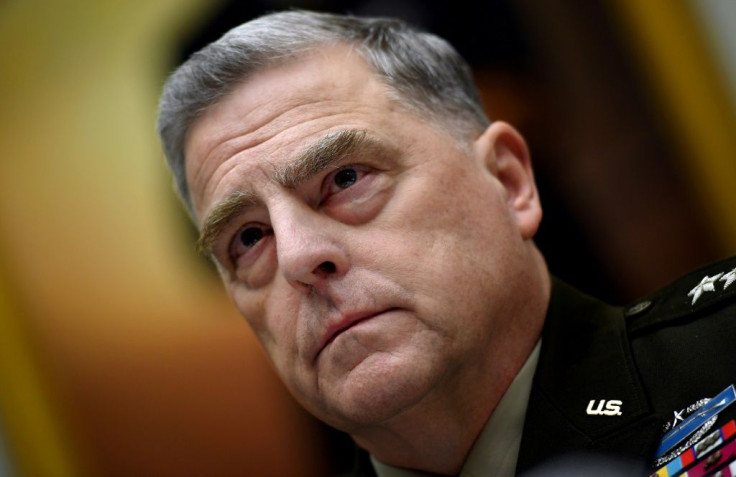US 'Absolutely' Has Ability To Defend Taiwan: Top Pentagon General
The United States military "absolutely" has the ability to defend Taiwan from an attack by China if called on to do so, US Joint Chiefs Chairman Mark Milley said Wednesday.
But the Pentagon's top general also warned that China's military had made stunning technological advances in a short time, signified by its recent globe-circling hypersonic missile test, leaving the world poised to enter an era of increased strategic instability.
Milley told the Aspen Security Forum he did not expect China would take military action against Taiwan, which Beijing views as a breakaway province, in the next 24 months.
"Having said that, though, the Chinese are clearly and unambiguously building the capability to provide those options to the national leadership if they so choose at some point in the future," he said.
When asked if the Pentagon would be capable of defending the island, he replied there was no question it could.
"We absolutely have the capability to do all kinds of things around the world, to include that if required," Milley said.
"We absolutely have the capability. There's no question about that."
He said the United States rightly maintains a policy of "strategic ambiguity" about what it would do if the Chinese military sought to seize control of the island.
He added the United States believes the differences between China and Taiwan should be resolved peacefully based on the will of the people on both sides.

"We are just interested in a peaceful outcome," Milley said.
Milley said that after seven decades of competition between two nuclear superpowers, Russia and the United States, China's rapid expansion of its military in size and technological capabilities had created a tripolar rivalry of increased complexity.
He said China's test launch in August of a nuclear-capable hypersonic missile, which circled the globe at a relatively low altitude and a velocity of more than five times the speed of sound, was nearly as significant as Russia's stunning launch in 1957 of Sputnik, the first-ever satellite placed into space.
The hypersonic test was "very significant," he said, underscoring China's advances all around in military technology.
"We are witnessing one of the largest shifts in global geostrategic power that the world has witnessed," he said.
The consequence, Milley said, is that the world is entering a period "potentially much more strategically unstable" than the decades following World War II.
"That means that we're going to have to put a premium, in my view, on maintaining great power peace," he said.
© Copyright AFP 2024. All rights reserved.





















